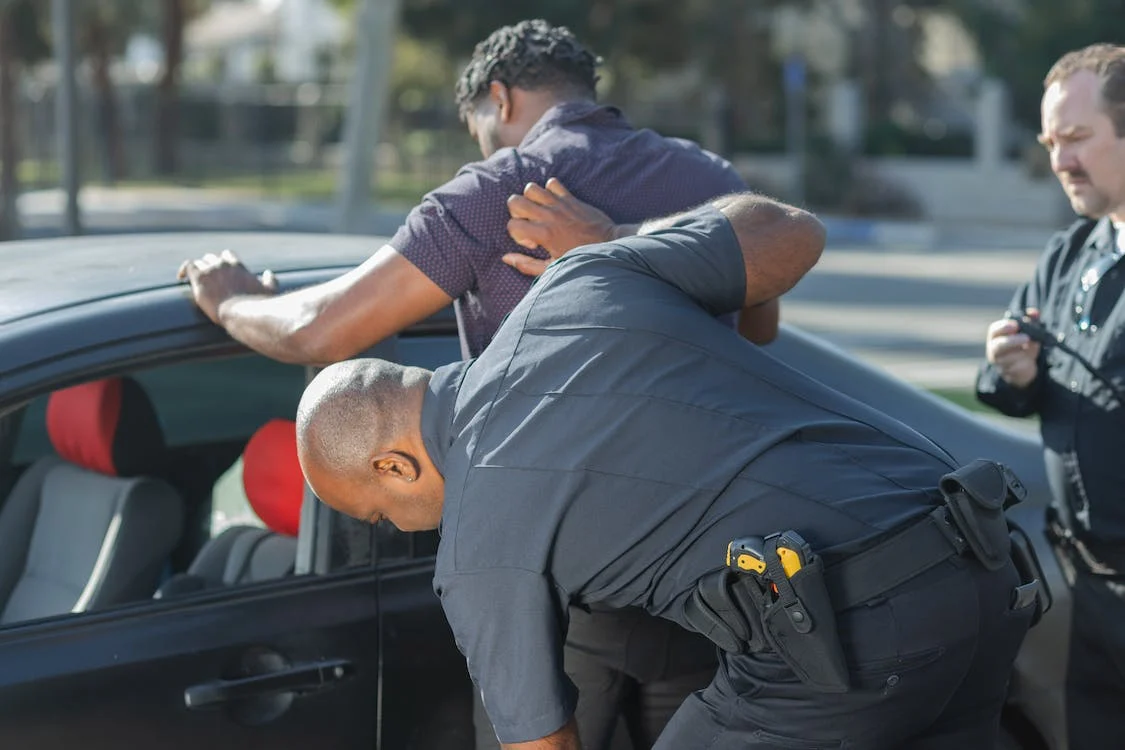Ever wonder what really happens when someone is “arrested”? Most people think of flashing lights, handcuffs, and a ride in the back of a patrol car. But not every arrest looks like that—and not every arrest ends with someone behind bars right away. That’s where understanding the difference between a custodial arrest and a non-custodial arrest becomes important, especially if you or someone you care about ends up in the system.
Let’s break it down in real-world terms—no legal jargon, just the facts you need to know.
Custodial Arrests: A Closer Look
When someone hears the term “custodial arrest,” they often envision the traditional scenario: handcuffs, a police cruiser, and a trip to the local precinct. Indeed, custodial arrests involve the physical detainment of an individual by law enforcement. Upon arrest, the person is taken into police custody, where their rights, including the Miranda rights, are typically read to them.
In Noble County, like in many jurisdictions, custodial arrests are governed by strict protocols and regulations to ensure the rights and safety of both the arrested individual and the officers involved. These arrests usually occur when law enforcement officers have probable cause to believe that a person has committed a crime.
Non-Custodial Arrests: A Different Approach
Non-custodial arrests, on the other hand, offer a departure from the conventional image of arrests. In these situations, individuals are not physically taken into custody. Instead, they are issued a citation or summons to appear in court at a later date. Non-custodial arrests often occur for less severe offenses or when the individual poses no flight risk or danger to society.
In Noble County, non-custodial arrests are increasingly utilized for minor infractions or misdemeanor offenses. This approach allows law enforcement to efficiently manage resources while still addressing legal violations.
In a custodial arrest, the person is not free to leave the moment they’re detained. This means they are taken to jail, booked, and held either until they’re released on bail or until their court date, depending on the severity of the charge and other factors. This type of arrest typically follows more serious offenses, such as felonies, violent crimes, or instances where a person poses a threat to public safety.
A custodial arrest often involves being held in jail, which typically triggers the need for bail. This is where licensed bail bond services, such as DeLaughter Bail Bonds, come into play to help individuals secure their temporary freedom while awaiting their court hearing.
Custodial vs Non-Custodial Arrest: What’s the Real Difference?

So, what really separates these two processes? It’s not just about whether someone ends up in a holding cell. It’s also about legal implications, responsibilities, and the defendant’s rights.
The key difference in the custodial vs non-custodial arrest debate comes down to physical restraint and detention. In a custodial arrest, the person loses their immediate freedom and is placed in jail. In a non-custodial arrest, they’re free to go—but with a legal obligation to show up in court.
Another big difference lies in how quickly legal proceedings move. Custodial arrests may trigger an immediate bail hearing and booking process, while non-custodial arrests often delay that timeline, giving the individual more space but also more responsibility.
Why Knowing the Difference Matters
Understanding these definitions isn’t just legal trivia—it can impact how you prepare for court, whether you’ll need a bail bondsman, and how your criminal record is documented.
- A custodial arrest often becomes part of your criminal history sooner and may trigger more immediate legal consequences.
- A non-custodial arrest might not show up on background checks until after a conviction or court appearance.
If you’re a first-time offender or someone who made a mistake, the type of arrest can influence everything from how you’re treated in court to what legal options are available to you.
How Arrest Type Impacts Your Legal Strategy
The kind of arrest—custodial or non-custodial—can change how you and your attorney approach your case. In a custodial arrest, time is critical. You may need to arrange for bail, prepare for arraignment, and begin working with your defense attorney immediately. These arrests often involve more serious charges, meaning your legal team may need to act fast to negotiate terms or reduce potential penalties.
Meanwhile, a non-custodial arrest gives you a little more breathing room. You’re not sitting in a cell, and that means more time to build a case, consult with legal counsel, and avoid rash decisions. But don’t mistake that breathing room for a free pass—it’s still a legal charge that can carry weighty consequences if not handled seriously.
Being proactive, regardless of the arrest type, is always your best bet. That means responding to summonses, showing up for court, and consulting professionals early on.
Common Misconceptions About Custodial and Non-Custodial Arrests
It’s easy to assume that a non-custodial arrest means you’re not really “in trouble,” or that a custodial arrest automatically means you’ll spend weeks in jail. Neither is necessarily true.
One of the most common myths is that you can’t be arrested without being taken to jail. But by definition, a non-custodial arrest still counts as an arrest—and it can appear on your record, impact your job opportunities, or influence court decisions down the road.
Another misunderstanding? That custodial arrests are always for violent crimes. In reality, they can happen due to prior offenses, missed court dates, or even failure to pay fines.
The bottom line is that both arrest types carry consequences, and the smartest thing you can do is stay informed, take every charge seriously, and seek help from those who know the system inside and out.
Implications and Considerations

Understanding the differences between custodial and non-custodial arrests is essential, especially for those navigating the legal system. One significant distinction lies in the bail process. In custodial arrests, individuals may need to secure bail to secure their release from custody. Bail bond services, including those offered by bail bondsmen in Noble County, play a crucial role in facilitating this process.
In contrast, non-custodial arrests often do not require posting bail since the individual is not detained. However, failing to appear in court as required can result in serious consequences, including the issuance of a warrant for their arrest.
Partner with DeLaughter Bail Bonds for Reliable Assistance
Are you or a loved one facing a custodial arrest in Noble County? Don’t navigate the complexities of the legal system alone. Trust DeLaughter Bail Bonds to provide swift and reliable bail bond services tailored to your needs. Our experienced bail bondsmen understand the urgency of the situation and are ready to assist you 24/7. Contact DeLaughter Bail Bonds today, and let us help you secure your freedom.





















